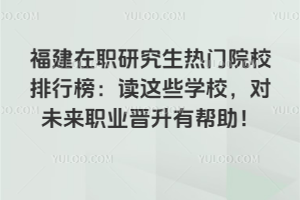- 微信公眾號

政策解讀
- 微信小程序

快速擇校

政策解讀

快速擇校
Generations of Americans have been brought up to believe that a good breakfast is essential to one’s life. Eating breakfast at the start of the day, we have been told, and told again, is as necessary as putting gasoline in the family car before starting a trip.
But for many people, the thought of food as the first thing in the morning is never a pleasure. So in spite of all the efforts, they still take no breakfast. Between 1977 and 1983, the latest year for which figures could be obtained(可獲得的), the number of people who didn’t have breakfast increased by 33%—from 8.8 million to 11.7 million—according to the Chicago-based Market Research Corporation of America.
For those who dislike eating breakfast, however, there is some good news. Several studies in the last few years have shown that, for grown-ups especially, there may be nothing wrong with omitting(省略) breakfast. “Going without breakfast does not affect work,” said Arnold E. Bender, former professor of nutrition at Queen Elizabeth College in London, “nor does giving people breakfast improve work.”
Scientific evidence linking breakfast to better health or better work is surprisingly inadequate(不適當), and most of the recent work involves(涉及) children, not grown-ups. “The literature,” says one researcher, Dr Earnest Polite at the University of Texas, “is poor.”
1. The main idea of the passage is _______.
A. breakfast has nothing to do with people’s health
B. a good breakfast used to be important to us
C. breakfast is not as important to us as gasoline to a car
D. breakfast is not as important as we thought before
2. For those who do not take breakfast, the good news is that _______.
A. several studies have been done in the past few years
B. the omission of breakfast does no harm to one’s health
C. grown-ups have especially made studies in this field
D. eating little in the morning is good for health
3. The underlined part “nor does giving people breakfast improve work” means _______.
A. people without breakfast can improve their work
B. not giving people breakfast improves work
C. having breakfast does not improve work, either
D. people having breakfast do improve their work, too
4. The word "literature" in the last sentence refers to _______.
A. stories, poems, play, etc
B. written works on a particular subject
C. any printed material
D. the modern literature of America
5. What is implied but not stated by the author is that _______.
A. breakfast does not affect work
B. Dr Polite works at an institution of higher learning
C. not eating breakfast might affect the health of children
D. Professor Bender once taught college courses in nutrition in London
參考答案及解析:
1. D。主旨大意題。文章先講傳統觀念, 強調早餐的重要;再講最新研究成果, 表明不早餐也不會影響工作和健康, 通過對比闡明最新研究成果,故答案選D。
2. B。 事實細節題。從…for grown-ups especially, there may be nothing wrong with omitting breakfast可知答案B正確。
3.C。 推理判定題。題目中這句話是承接前面一個否定句,nor是修飾improve, 由此可知這句話的意思是吃早餐也不會提高工作效率,即答案選C。
4. B。 詞匯猜測題。從recent work(作品)和researcher(學術研究者) 可猜出literature是著作的意思,即答案為B。
5. C。 推理判定題。從文章最后一段可知不吃早餐可能會影響小孩的健康,故答案選C。
特別聲明:①凡本網注明稿件來源為"原創"的,轉載必須注明"稿件來源:育路網",違者將依法追究責任;
②部分稿件來源于網絡,如有侵權,請聯系我們溝通解決。

本科畢業后可以報考在職研究生。若報考同等學力申碩,本科可以直接進校學習,有學士學位滿3年條件,可以申碩;若報考非全日制研究生,本科學歷滿3年可報考管理類專業,本...

在職研究生英語考試難度都不是很大,其中同等學力申碩因其先學習后考試的形式,深得報考者的人心。有意向的人員,可以趁早與在線老師聯系報名。

中國古代史在職研究生介紹中國古代史在職研究生是面向在職人員開設的人文社科類學歷提升項目,聚焦先秦至明清的歷史脈絡、制度演

福建在職研究生熱門院校排行榜涵蓋廈門大學、福建師范大學、福州大學、福建醫科大學等,其中廈門大學金融學實力突出,學費2.5萬-4.28萬;福建師范大學主打體育學、...

電氣工程在職研究生學費3萬左右院校有華北電力大學(3萬)、河北工業大學(2.8萬)、安徽工業大學(3.38萬)等,這些院校專業實力強勁,授課方式靈活(多為網絡班...

專科能報在職研究生嗎?專科生可報在職研究生,有同等學力申碩、非全日制研究生、中外合作辦學/國際碩士三種途徑。同等學力申碩專科可入課程班,但申碩需本科有學位滿3年...
評論0
“無需登錄,可直接評論...”